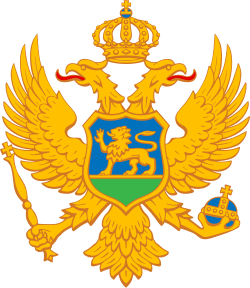| Name
(Birth–Death) | Term of office | Political party |
|---|
| Blagoje Lučić | 15 February 1991 | 14 July 1992 | Democratic Party of Socialists |
|---|
| Vuk Ognjenović | 15 February 1991 | 1 August 1992 | Democratic Party of Socialists |
|---|
| Zoran Žižić | 15 February 1991 | 24 December 1996 | Democratic Party of Socialists |
|---|
| Mihailo Ljesar | 1 August 1992 | 20 December 1993 [1] | Democratic Party of Socialists |
|---|
| Krunoslav Vukčević | 1 August 1992 | 24 December 1996 | Democratic Party of Socialists |
|---|
| Rade Perović | 5 March 1993 | 24 December 1996 | Democratic Party of Socialists |
|---|
| Asim Telaćević | 1 February 1994 | 2 July 2001 | Democratic Party of Socialists |
|---|
| Miodrag Vuković | 24 December 1996 | 16 July 1998 | Democratic Party of Socialists |
|---|
| Slavko Drljević | 24 December 1996 | 8 July 1997 | Independent |
|---|
| Milutin Lalić | 8 July 1997 | 2 July 2001 | Democratic Party of Socialists |
|---|
| Jovan Mihailović | 8 July 1997 | 5 February 1998 | Democratic Party of Socialists |
|---|
| Slavko Drljević | 5 February 1998 | 16 July 1998 | Independent |
|---|
| Predrag Drecun | 5 February 1998 | 16 July 1998 | People's Party |
|---|
| Predrag Goranović | 16 July 1998 | 27 January 2000 | Democratic Party of Socialists |
|---|
| Novak Kilibarda | 16 July 1998 | 4 July 2000 | People's Party |
|---|
| Dragiša Burzan | 16 July 1998 | 2 July 2001 | Social Democratic Party |
|---|
| Ljubiša Krgović | 27 January 2000 | 2 July 2001 | Democratic Party of Socialists |
|---|
| Savo Đurđevac | 4 July 2000 | 28 February 2001 | People's Party |
|---|
| Branimir Gvozdenović | 2 July 2001 | 10 November 2006 | Democratic Party of Socialists |
|---|
| Žarko Rakčević | 2 July 2001 | 8 January 2003 | Social Democratic Party |
|---|
| Dragan Đurović | 2 July 2001 | 10 November 2006 | Democratic Party of Socialists |
|---|
| Jusuf Kalamperović | 8 January 2003 | 10 November 2006 | Social Democratic Party |
|---|
| Miroslav Ivanišević | 8 January 2003 | 10 November 2006 | Democratic Party of Socialists |
|---|
| Gordana Đurović | 10 November 2006 | 11 June 2009 | Democratic Party of Socialists |
|---|
| Vujica Lazović | 10 November 2006 | 28 November 2016 | Social Democratic Party |
|---|
| Svetozar Marović | 11 June 2009 | 29 December 2010 | Democratic Party of Socialists |
|---|
| Igor Lukšić | 11 June 2009 | 29 December 2010 | Democratic Party of Socialists |
|---|
| Duško Marković | 29 December 2010 | 28 November 2016 | Democratic Party of Socialists |
|---|
| Igor Lukšić | 4 December 2012 | 28 November 2016 | Democratic Party of Socialists |
|---|
| Rafet Husović | 4 December 2012 | 4 December 2020 | Bosniak Party |
|---|
| Azra Jasavić | 12 May 2016 | 28 November 2016 | Positive Montenegro |
|---|
| Milorad Vujović | 12 May 2016 | 28 November 2016 | Independent |
|---|
| Petar Ivanović | 12 May 2016 | 28 November 2016 | Democratic Party of Socialists |
|---|
| Milutin Simović | 28 November 2016 | 4 December 2020 | Democratic Party of Socialists |
|---|
| Zoran Pažin | 28 November 2016 | 4 December 2020 | Independent |
|---|
| Dritan Abazović | 4 December 2020 | 28 April 2022 | United Reform Action |
|---|
| Vladimir Joković | 28 April 2022 | Incumbent | Socialist People's Party of Montenegro |
|---|
| Raško Konjević | 28 April 2022 | Incumbent | Social Democratic Party |
|---|
| Jovana Marović | 28 April 2022 | Incumbent | United Reform Action |
|---|
| Ervin Ibrahimović | 28 April 2022 | Incumbent | Bosniak Party |
|---|
